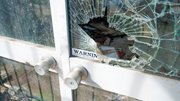News
ATMs for visually impaired top banking priority for TCF Bank, Council of the Blind
December 8, 2008
WAYZATA, Minn. — TCF Bank, a subsidiary of TCF Financial Corp., the Illinois Council of the Blind, an affiliate of the American Council of the Blind, and Equip for Equality has launched an initiative to provide better access to ATM and banking services for the visually impaired.
According to a news release, TCF has agreed to install 350 audio-enabled ATMs across its ATM network in Minnesota, Illinois, Michigan, Colorado, Wisconsin, Indiana and Arizona over the next 13 months. Hundreds of TCF banking locations will have the devices by the end of next year.
The TCF settlement agreement is the 20th agreement about "talking" ATMs that has been reached without litigation using the structured negotiations process. While TCF Bank is the smallest bank to engage in structured negotiations, Bank of America continues to be the largest, with more than 12,000 installed audio-enabled ATMs.
Audio-enabled or so-called "talking" ATMs, which deliver audio information privately through a standard personal headset, make it possible for people who are blind or have difficulty reading an ATM screen to use the ATM independently.
"This settlement with TCF Bank represents yet one more milestone for blind and visually impaired people on the road to full equality in the handling of everyday commercial transactions," said ACB president Mitch Pomerantz. "It also spotlights the benefits of structured negotiations over costly and time-consuming litigation."
TCF also plans to enhance its current programs for communicating with customers with visual impairments. The bank will provide monthly bank statements for consumer accounts in Braille and large print, and will adopt a policy for ensuring effective communication of other banking documents.
"I was pleased to represent the Illinois Council of the Blind in assisting in the implementation of accessible ATMs with TCF banks," said Camille Caffarelli, Illinois Council of the Blind's bank negotiations representative. "Those of us who are blind or visually impaired should be able to equally access these machines that have become a part of the daily fabric of our lives. It's simply a part of equal citizenship."













